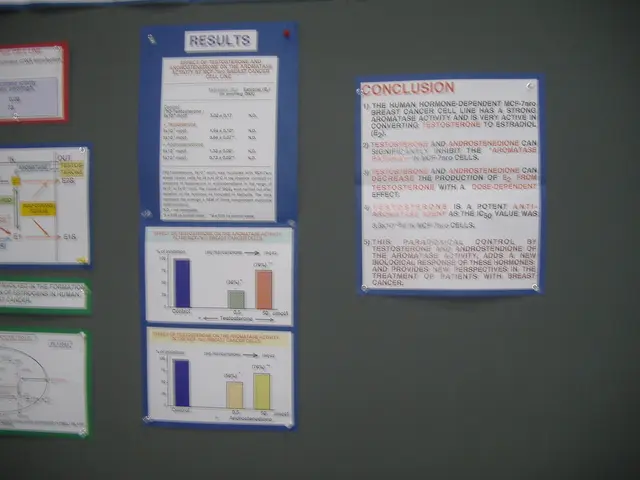Busted Myth: Is It Possible to Overdose on Fruit?
Overconsumption of Fruit: Potential Health Implications
Internet health tips, particularly from TikTok, should be taken with a grain of salt, especially when they come from fitness influencers who claim that for health reasons, one should avoid both industrial sugar and fruit. While fruits contain water, vitamins, minerals, fiber, and fruit sugar, can eating too much fruit really be detrimental to your health?
"A general upper limit for fruit consumption cannot be established," claims Claudia Müller of the German Nutrition Society to ntv.de. This is due to a compound found in fruit that effectively counters sugar, making most people generally worry-free when it comes to fruit intake. Only those with specific physical limitations should be cautious about their fruit consumption.
Fruit's Sugar Barrier
Fructose (fruit sugar) when combined with glucose forms table sugar (sucrose). Overconsumption of fructose can lead to health problems such as worsening tooth decay, promoting fatty liver, and increasing blood fat levels[1]. However, there's another aspect to consider when it comes to fruit.
Fruit not only contains sugar but also a considerable amount of fiber that slows down the absorption of fructose in the intestines. These fibers form a barrier between digestive enzymes and sugar or bind directly to sugar molecules. This prevents a spike in blood sugar levels immediately after a meal and promotes a sense of fullness[1]. Thanks to fiber, most people will feel full before overindulging in fruit.
Exceptions for Diabetics and Fructose Intolerant
Exceptions include diabetics and those with fructose intolerance. Their bodies may have difficulty fully digesting fructose, leading to digestive problems. Diabetics are advised to limit their daily fruit intake to no more than two portions to control blood sugar levels. Müller suggests combining fruit with yogurt, quark, or muesli to reduce the impact on blood sugar levels after consumption[1].
Individuals with fructose intolerance should also monitor their fructose consumption and may be able to improve their tolerance over time by combining it with proteins and fats[1].
Focus on Consuming Enough Fruit
Everyone else should be more concerned with ensuring they consume enough fruit rather than worrying about overeating. Müller strongly advises people to aim for five portions of fruit and vegetables daily. "An adult's portion size is approximately the size of one's own hand," Müller says. This translates to about one piece of fruit like an apple or an orange, two handfuls of berries, or one handful of dried apricots[1].
For children, portion sizes should be adjusted proportionally[1]. It's important to prioritize fresh, whole fruit when possible, but Müller also considers dried fruits and juice to be a part of the daily portions.
Smoothies and Fruit Consumption
While smoothies are made from fruit, they contain less dietary fiber and secondary plant compounds but more fruit sugar per serving. Fresh fruit provides more volume and a greater sense of fullness. "The amount of fruit consumed in one meal would likely not be the same when drinking a smoothie," explains Müller[1].
Further Reading on Fruit in Nutrition:
- German Nutrition Society: Recommendations for Fruit and Vegetable Consumption
- Food and Agriculture Organization (FAO) and World Health Organization (WHO): Fruit and Vegetable Intake for Good Health
- Diabetes Information Service: Dietary Tips for Diabetics
- Consumer Center: Powders and Smoothies: Not a Substitute for Fruit
Sources:
- ntv.de
- Dietary Guidelines for Americans (DGA)
- Healthline (Fiber Content in Fruits and Vegetables)
- Five-a-Day Campaign (wfnh.org)
- Nutrition
- Fruit
"It's essential to focus on consuming enough fruit for health-and-wellness, rather than worrying about overeating, as the fiber in fruit helps regulate the absorption of sugar and promotes a feeling of fullness."
"In the realm of science, fruit's fruit sugar, when combined with glucose, forms table sugar, but when consumed along with fiber, it doesn't lead to an immediate spike in blood sugar levels, making fruit a valuable addition to a balanced diet."







